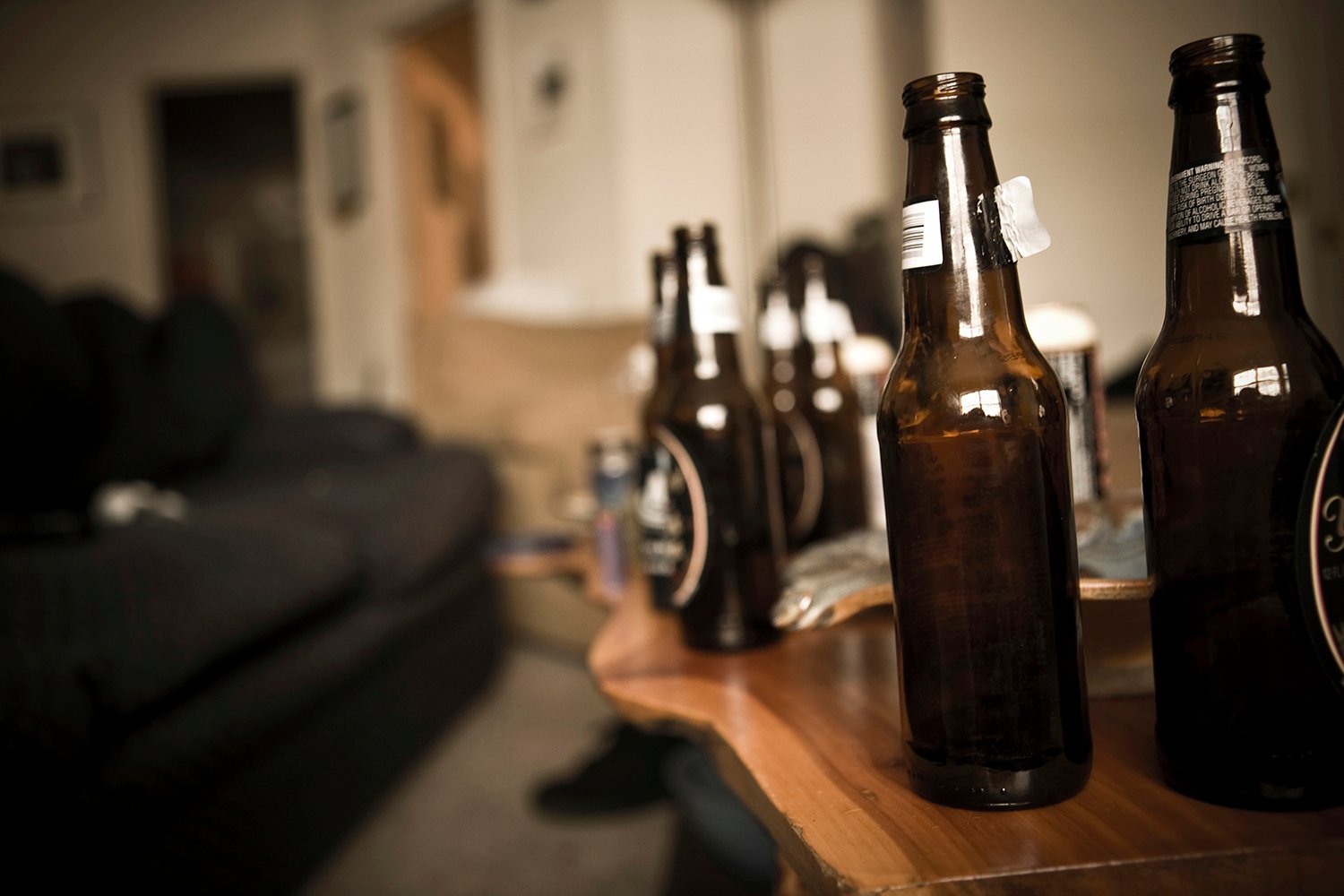Fighting the Works of the Flesh: Drunkenness
In the 16th post in this series covering the works of the flesh, we examine alcohol abuse and look at several strategies we can use to avoid drunkenness.

Drunkenness in Galatians 5:21 is not referring to the mere use of alcohol; it refers to the abuse of alcohol. This would also apply to other mind-altering substances, regardless of their legality in Colorado, Washington state, Alaska and the District of Columbia. Being intoxicated with any mind-altering substance produces effects on our thoughts, speech and behavior that are opposite of what God intends for us (Ephesians 5:18). God wants us to be led by His Holy Spirit, while also maintaining self-control at all times (Galatians 5:23; 2 Timothy 1:7).
Society has many lies that oppose God’s view.
Lies about drunkenness
Lie No. 1: “You’ll be fine. It’s fun! Just don’t become an alcoholic.”
Many who become addicted to alcohol do not become addicted in a day. It can start the same as other addictions, with curiosity, lack of self-control, pressure from others, depression and even intimidation. How many drunk drivers have thought, I’ll be fine; I have enough control to be able to drive—before getting on the road and killing someone? How many inebriated college students have thought, I’ll be fine; I trust these people—before passing out at a frat party and then being sexually abused? Unfortunately, far too many.
Alcoholism can start the same as other addictions, with curiosity, lack of self-control, pressure from others, depression and even intimidation.
Movies and television shows often portray drunkenness as humorous. But the reality of drunkenness—including the many negative consequences—is not a laughing matter. The reality of the “funny drunk” portrayed in movies is an irresponsible and humiliated person being put in the back of a police car. The reality is a lonely figure trying to find true love in a bar, using alcohol to numb his or her pain and loneliness.
Lie No. 2: “I’m just having fun with my friends. We have a designated driver. No harm done.”
Proverbs 20:1 says, “Wine is a mocker, strong drink is a brawler, and whoever is led astray by it is not wise.” Another proverb refers to those lost in drunkenness as having woe, sorrow, contentions, complaints, wounds without cause and redness of the eyes (Proverbs 23:29). It also mentions their “eyes will see strange things” and their hearts “will utter perverse things” (Proverbs 23:33).
Does that sound like no harm done? Wrong! Just because some people seem to get away with it temporarily doesn’t mean that drunkenness is okay. There are always consequences sooner or later.
Alcoholics who have lost everything (family, jobs, friends and respect) often see how insidious this lie really is. Great harm is done when reality has to be constantly altered in order to enjoy life or get through the day. God desires that His followers be able to focus their minds on living a right way of life—at all times. Perhaps that is why “not given to much wine” is a character trait God requires for spiritual leadership (1 Timothy 3:8; Titus 2:3).
Strategies to overcome drunkenness
1. If you know your limit, don’t go past it. If you don’t know, avoid exploring.
Both large and small social activities can be breeding grounds for drunkenness. Be aware of how much alcohol you have consumed during the course of an evening or day. A Christian should not get into a habit of drinking enough to experience a “buzz” or to become “comfortably numb.”
2. Don’t rationalize getting drunk as anything other than a sin against God.
The Bible refers to the body as a temple, housing the Holy Spirit (1 Corinthians 6:19-20). It is hard to “glorify God in your body and in your spirit” when committing a work of the flesh and refusing to acknowledge it as sin. Remember that drunkenness is in the same list as murder and adultery. This shows us how seriously God takes it. That seriousness should lead us to avoid and overcome it.
Don’t rationalize alcohol abuse as an instrument of weekend fun or as a method for numbing us from life’s problems; see it as a sin against God.
3. Hate drunkenness.
There are many reasons to hate drunkenness. The more you understand how it can destroy lives and families, the easier it is to hate it. Hate it because of the thousands it kills every year due to car accidents. Hate it because it breaks up marriages. Hate it because of the thousands it kills from alcohol poisoning. Hate it for the many, many other negative consequences it has on lives all around the world. See drunkenness for exactly what it is: deadly, addictive and destructive.
Stay sober.
For more insight into alcohol abuse, read the following resources:
This is the sixteenth in a seventeen part series on Fighting the Works of the Flesh. To read part 15, see “Murders.” To continue the series, see part 17 “Revelries.”
Date Posted: March 2, 2015

 by Eddie Foster
by Eddie Foster

